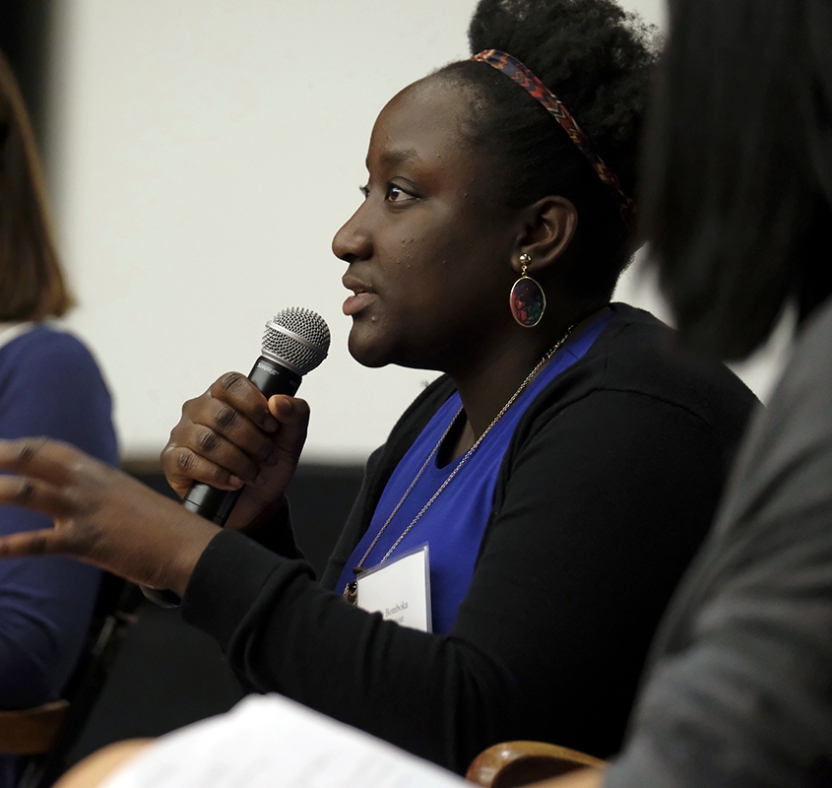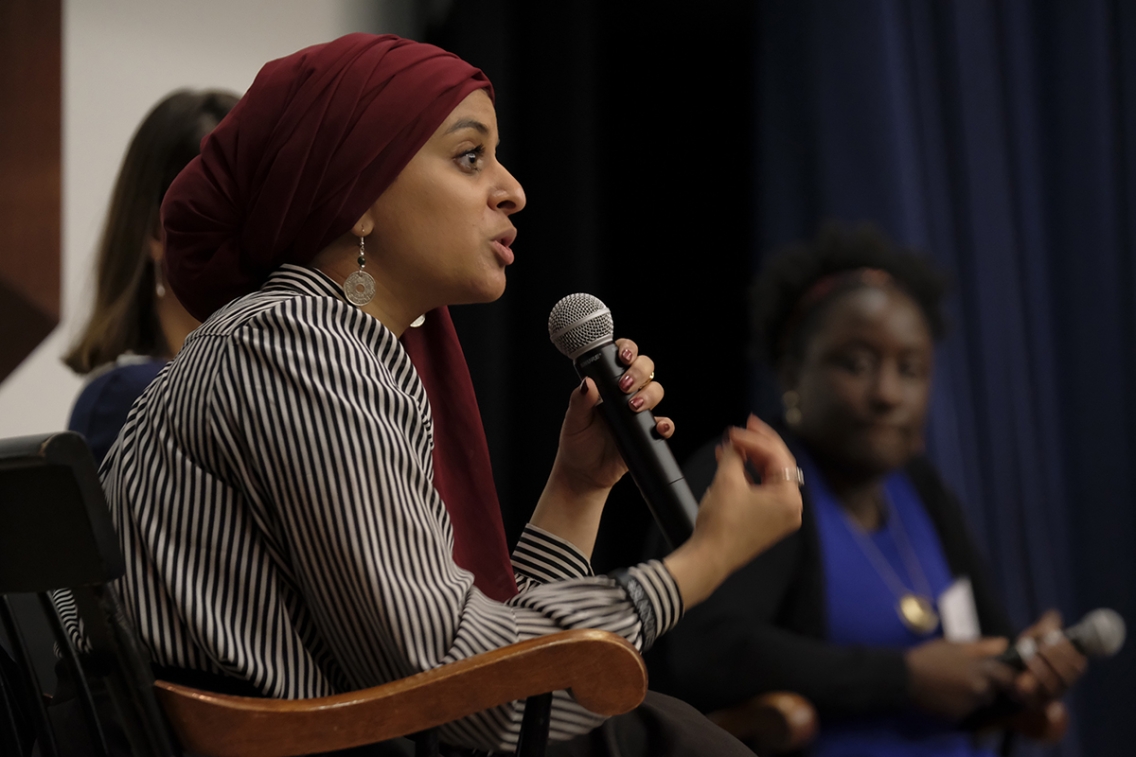Symposium Draws Focus to Inclusivity at Middlebury

MIDDLEBURY, Vt. — How can Middlebury College be a welcoming and inclusive place for all students, regardless race, class, gender, and identity? How can students, faculty and staff alike grapple with questions of bias? What does inclusivity really look like?
These were a few of the questions which participants and speakers tackled at the inaugural symposium of the Alliance for an Inclusive Middlebury (AIM), held May 6 and 7. The symposium, “Activists, Allies, and Accomplices: Responses to Racism Today,” included student panels on allyship and activism, as well as keynote addresses from Rinku Sen, activist and executive director of the racial justice organization Race Forward, and Rashawn Ray, associate professor of sociology at the University of Maryland.
In her welcoming remarks, President Laurie Patton called the symposium the culmination of a series of sometimes heated conversations about race, gender, privilege and bias that took place at Middlebury during the academic year.
“We’ve changed the conversations we’re having on campus and with each other, and we’ve changed the way we see ourselves,” said Patton. “I think we’re more aware of questions of inequality and of privilege, and we’re taking inventory of our own individual intersections of race, class, gender, sexuality, orientation, religion and disabilities in way that we didn’t nine or ten months ago.”
And yet, Patton stressed, the work has just begun. “There is no checking the box on inclusivity,” she said, adding later, “This is where we fail and begin again. This is where we push to wake others, and ourselves, up. And this is an activity for the rest of our lives.”

Several changes are already underway at the College to address bias and inclusion. Recognizing a need for better mental health services, the College hired two interns, and is finalizing the hiring of two additional staff members, to better support students of color on campus. The Posse program spent two days on campus in intensive trainings with faculty and staff, and faculty will undergo further training later this month on inclusive search practices.
There’s more to come, too: The first-year orientation will be revised to better address inclusivity. The College plans to undertake a focus on restorative justice, and is also finalizing a bias incident protocol to help individuals who experience racism on campus.
Encountering and battling such racism can be isolating and exhausting–that, in part, was the message from students on a panel addressing the experience of current student activists, alumni, and a visiting student from Bowdoin.
“The most powerful activism happens in informal spaces, through informal conversations, especially on college campuses,” said Rana Abdelhamid ’15, now a student at Harvard’s John F. Kennedy School of Government. Those conversations can be hard to start on often racially segregated college campuses, Abdelhamid said. “It’s really important, in order to build a movement, to build genuine relationships with people who may not be perceived as automatic allies.”
In the first of two keynote addresses, Sen–an author, activist, and publisher–spoke to the deep and troubling state of racial anxiety in the United States, and reminded activists that “our job is to figure out how to interrupt [that anxiety] and redirect it.”
To that end, and to the goal of bringing peace rooted in justice to our communities, Sen urged activists to bring a strong “race lens” to any work toward justice, be it environmental, economic, or social; she also spoke to the importance of developing the emotional equipment to do the work of changing deeply rooted bias.
“Equity has to be our goal,” said Sen. “Diversity cannot be our end goal.”
More information about the goals and activities of Alliance for an Inclusive Middlebury is available online.
Reporting by Kathryn Flagg ’08; Photos by Brett Simison

